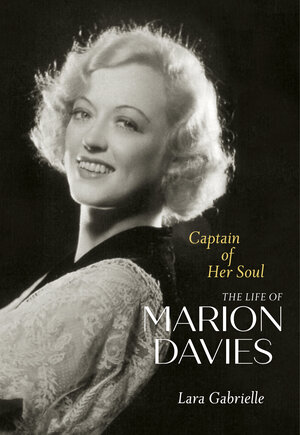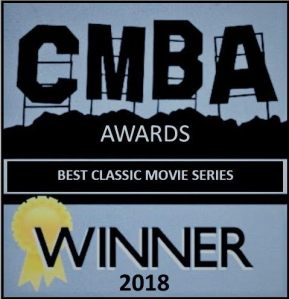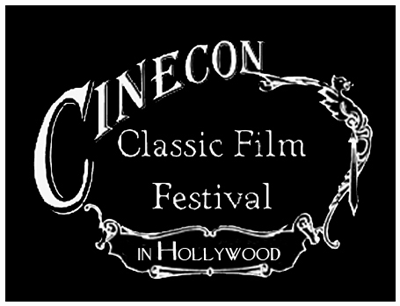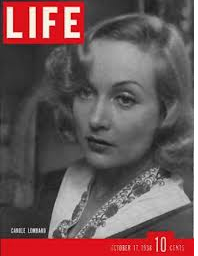All right, now unless you’ve been living under a rock for the past 73 years, the video you see above contains one of the most iconic and identifiable melodies in film history. Officially titled “Tara,” it is the main theme to Gone With the Wind, whose magnificence has been sending chills up the spines of generations of moviegoers for nearly over 7 decades. The melody is certainly familiar, but the composer, unfortunately, was never formally recognized by the Academy for his achievement in this epic drama, where music is central.
At the 1940 Academy Awards, Gone With the Wind swept up the awards in nearly every category, winning a grand total of 9 Oscars, including Best Actress, Best Supporting Actress, Best Art Direction, Best Cinematography, Best Editing, Best Screenplay, and Best Picture. Notably missing, however, was Max Steiner for his gripping musical score, whose nomination lost out to Herbert Stothart for his original score to The Wizard of Oz.
The opening to Herbert Stothart’s winning score.
However, Max Steiner’s contribution to film music goes far beyond Gone With the Wind, in fact it permeates nearly every notable film score to date, either through his own hand or by association (Steiner is said to have coached such contemporary greats as Alfred Newman, Franz Waxman, Erich Wolfgang Korngold, and Miklos Rosza in film composition). He is credited as the true pioneer of film composing, and is considered to be one of the greatest film composers of all time.

Steiner was born in Vienna in 1888, and was soon identified as a child composing prodigy. He had studied with Johannes Brahms and Gustav Mahler before the age of 16, and completed his studies at the Imperial College of Music in half the time of his contemporaries. He arrived in Hollywood in 1929 to orchestrate Rio Rita for RKO Studios, and soon garnered fame for his score of King Kong, and for conducting several Fred Astaire/Ginger Rogers musicals, such as Top Hat and Roberta.
The ending of Steiner’s score for King Kong.
His reputation continued to grow in the 1930’s, and after winning his first Academy Award in 1934 for The Informer, he left RKO Studios for Selznick International, then signed a long-term contract with Warner Brothers, where he undoubtedly left his biggest mark.
Instead of going through each Warner Brothers picture he scored individually, I am going to compile for you a number of videos that illustrate Steiner’s work in various well-known Warner Brothers films:
After leaving his contract with Warner Brothers, Steiner’s career began to wane, but not before composing the score for the John Ford classic The Searchers in 1956. He made a few ventures into television, notably scoring the 4th season of “Hawaiian Eye,” and his final film score was for the film Two on a Guillotine in 1965.
Max Steiner’s music is extremely versatile, and runs the gamut from intensely powerful to delicate and timid, often within the same score. Indeed, Steiner himself claimed that he had no set rule for writing his scores. “There is no Method,” he wrote. “My attitude–to give the film what it needs. And with me, if the picture is good, the score stands a better chance of being good. The hardest thing in scoring is knowing the location of your music. Music can slow up an action that should not be slowed up, and quicken a scene that shouldn’t be quickened. Knowing the difference is what makes a film composer.” He made use of any and all references at his disposal, including “borrowing” modes and melodies from other composers and making them his own. The most notable examples of this are from Casablanca, where variations on the Marseillaise and popular tunes are heard throughout the film–
And of course from Gone With the Wind, where Steiner interweaves American folk songs from the South with his own composition. In this clip, listen for Steiner’s transformation of the lively, upbeat folk song “Dixie” into a somber, melancholy moment by transposing it into a minor key.
We have Max Steiner to thank for much of what film music is today. When I mentioned to somebody that I was working on this blog post, she asked me “Well, is there anybody like Max Steiner today?” I was hard pressed to think of anyone, as he pioneered so much of that which we take for granted in the modern age. The only person I could think to possibly compare him to is John Williams, in the fact that both Steiner and Williams have an incredible number of stellar film scores to their credit, and are legends in the industry.
I leave you with a video compilation of some Steiner masterpieces. The history of film music is a subject I wish were better covered in print and other information outlets, as it is so often an underrated factor in our overall movie-watching experience. Max Steiner has contributed so much to the films we hold dear as a culture, and too few people know all that he has done. Thanks for reading!



























_03.jpg)


WHAT GREAT MUSIC….ALONG WITH KORNGOLD, HE WAS ONE OF THE BEST…THANKS FOR THE MUSIC….
I don’t think he taught any of those composers you mentioned, but he was certainly up there with them. There are far too many favorite Steiner scores to mention, but that montage is a very nice introduction to the man’s talent. We will not see the likes of him anymore and the movies are the poorer today because of it. Thanks, Lara, for highlighting this great talent.
Thanks for your comment! Yes, I agree with everything you write here. I have read that he taught those composers about specifically composing for film, but you’re right in that he had no influence in their overall musical ability. That they did themselves! My remark was specifically relating to coaching in film composition. I’ve changed it to make it more clear. 🙂 Thanks again for writing!
I really don’t know much about Max Steiner. Am glad you posted about him.
Steiner was a pioneer in the film industry–even if what he did wasn’t a “visual” art. Nice profile.
Pingback: Here’s Linking at You- May 4 : The Cinementals
You left out Max Steiner’s most used piece of film music, We Watch The Skyways, which was the main theme in several movies including Dive Bomber, Operation Pacific, Fighter Squadron and Up Periscope. It’s a catchy tune that many have heard but didn’t kook who wrote it.
Thanks for that, Russ! Do you mean that’s his most used piece of film music in that he used it for multiple movies? Because I would argue that though perhaps it’s literally used most in his movies, Tara’s Theme would be the most used in a cultural context.
LET’S FACE IT…HIS MOST OFTEN HEARD MUSIC IS THE THEME FROM “GONE WITH THE WIND”…..